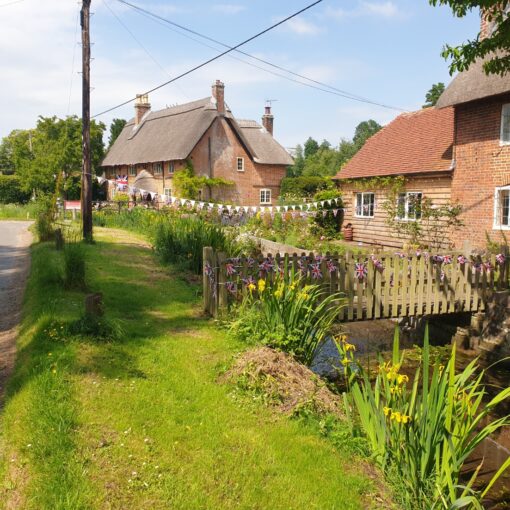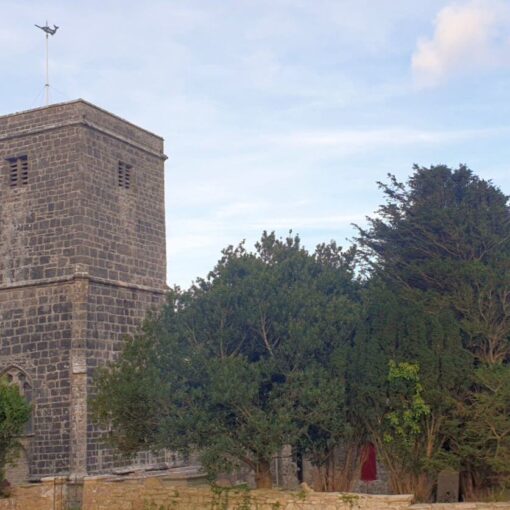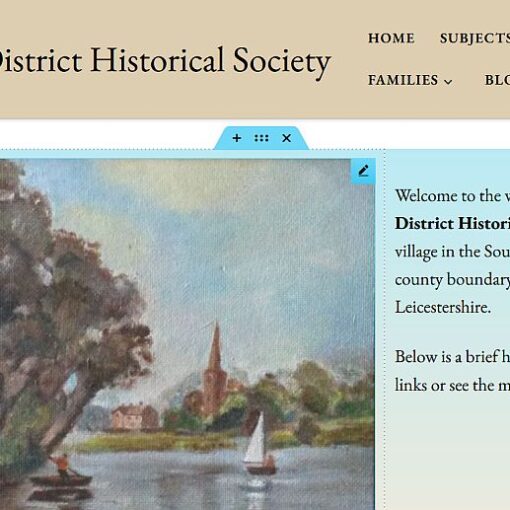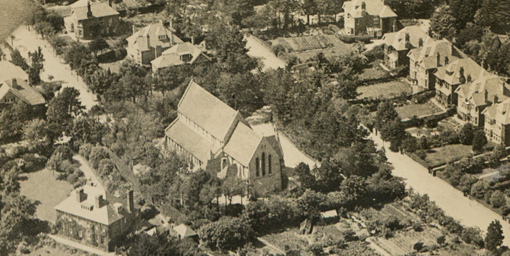…. or ‘The Air Crash and the Bones in the Suitcase’
The rules of Intestacy – who inherits if someone dies without a will – are different in England, Wales, Scotland and Northern Ireland. But it used to be even more complicated, as we found when we began to research an aircraft crash that happened 100 years ago.
The Parents
The story starts with James Sproston, originally from Stepney, in the East End of London. By the 1860s he was a fish merchant in Great Yarmouth, living with a local girl, Lavinia Harriett Westgate (1865-1925). They don’t seem to have married (perhaps he was already married) and they used the surname ‘Stanley’. They had several children registered as Westgate but known as Stanley. At the time, as they weren’t married, the father wouldn’t have been named on the children’s birth certificates.
When James died in 1900 his considerable estate passed to his brother George Sproston, a fishmonger in Tunbridge Wells. Its not clear if this was according to his will, or because he died intestate and neither his ‘marriage’ nor his children were legitimate. Lavinia then called herself Mrs Sproston, widow. By 1911 she was running a boarding house in Great Yarmouth.
The Uncle
James’ brother George Sproston never married. He was a fishmonger and then a retail fish salesman in Tunbridge Wells. On retirement he took a suite of rooms at the Hotel Russell, where he kept his collection of old china and porcelain.


Archibald Sproston
James and Lavinia’s son Archibald John (‘AJ’) was born in Great Yarmouth on 15 Nov 1885. He was registered as Archibald Stanley Westgate (his mother’s name) and known in Great Yarmouth as Archibald Stanley.
By 1901 he was a pupil Bethany House School, a public boarding school in Kent and his older sister, Eva Stanley Westgate (born 1882), was living with Uncle George in Tunbridge Wells. Archibald and Eva were now using the Sproston name.
Around 1902 Archibald moved to Tunbridge Wells and studied the building trade at the Technical Institute. In 1907 he erected the Invicta Motor Company works (later the St John’s Motor Co.), which he then co-managed for two years. His Uncle George had invested in the business.
He became a well-known motorbike racer, competing in several London to Edinburgh motorcycle runs and racing events at Brookland. He was a member of the 1911 Rudge works team and also patented a sidecar stand in 1911.
When charged with speeding (at 29mph!) in 1913 he already had 5 motoring offences recorded. He was injured in the 1914 Isle of Man TT races.
When the Great War broke out, he volunteered for the Royal Engineers as a motorcycle despatch rider. He was still living in Tunbridge Wells and named his Uncle George as his next of kin. He served in France where he was injured by a shell that killed another rider who’d joined up with him. Archibald was mentioned in despatches and later served in Palestine and India. He twice applied to transfer to the Royal Flying Corps as a pilot (he may have done some flying at Brooklands before the war). His application was eventually accepted in early 1918 and he became an officer cadet, transferring to the RAF when it was formed in April 1918. His pilot training was cancelled when the war ended.
He later joined W H Elce and Co, motorcycle agents in London as a motor salesman, director and company secretary. In 1922, whilst living at Chester House, Marylebone, he was charged with drunk and dangerous driving.
In early 1924 he married Marie Louisa Bird (1903-1924) from Lambeth. She was a cashier at the Empire Theatre, Brixton. She moved into his house at 25 Queen Alexandra Mansions, Judd Street, St Pancras.

The Crash
Around midday on Christmas Eve 1924, Archibald, his wife Marie and his Uncle George were amongst the 7 passengers that boarded an Imperial Airways flight at Croydon Aerodrome, bound for Le Bourget, Paris.
They were going to France (it was said) to purchase cars and motorcycles for W H Else and Co. It seems to have been a last-minute decision to fly there, rather than go by train and boat. George (aged 76), being the heaviest passenger, occupied one of the centre seats.
The aircraft was a De Havilland DH.34B, registration G-EBBX.

It took off from Croydon Airport at 1200, but didn’t gain height, flew low over Purley and then crashed at Castle Hill (a housing estate was under construction) only 1½ miles from the aerodrome. It immediately exploded and caught fire, killing the pilot and all the passengers.
This was the first fatal accident suffered by Imperial Airways and led to the first public enquiry into an airline accident.
George Sproston (76), Archibald (35) and Marie (21) were all buried on the same day at Buckhurst Hill, Essex.
We’ll cover the accident itself and the background of the pilot and other passengers in another post.
The Inquest
The inquest found that all those onboard had probably been, at least, knocked out by the crash and died in the flames. But it was claimed by the Treasury Solicitor that Marie was killed by a blow to the head immediately. The order in which the Sproston family members died was important because of their wills and the intestacy laws at the time.
Under a1922 Act a husband and wife could inherit each other’s property. Marie had made a will, leaving everything to her father, Joseph Bird, variously described as a carman (a luggage delivery man) or scene shifter. Archibald doesn’t seem to have made a will, in which case at least some of his estate would pass to his wife, if she survived him. And then, under the terms of her will, to her father. But if the Crown could prove that Marie died first, it seems neither family would get anything from Archibald’s estate. The situation may have been complicated by Archibald being illegitimate.
According to George’s will, Archibald was entitled to half of his residuary estate – between £4,000 and £5,000 – if he survived his uncle. In the event, probate was granted on the £16,745 estate (about £1.25 million today), which all went to William Frederick Sproston, fish salesman. Although later, the government decided George had died intestate as to at least part of his estate.
It may have been this case which led to the 1925 Law of Property Act, which included a presumption that in cases of simultaneous death the younger person survived the elder.
But it didn’t end there…..!
The Bones in the Suitcase
In 1929 a conductor found a suitcase on the top deck of a London bus at Kennington, near where a man had been sitting. He handed it in to the left luggage depot. On opening it they found charred human bones and a diary, and other documents belonging to a Mrs Eva Prescot.
The bones taken to Scotland Yard and were found to be from a middle-aged woman, dead less than 2 months.
Mrs Prescot, who had arrived from Australia in June had been living in a cottage in Herefordshire with her maid. She later said she was being blackmailed and, on arrival in England she’d been met by a man claiming to be a Scotland Yard detective. She gave him the documents and that was the last she’d seen of them.
It turned out that Mrs Prescot was Archibald Sproston’s sister, Eva. She’d married twice, first to a Mr Langton. Then, in the early 1920s, ‘Eve’ Langton married Rupert Warre Kenrick Prescot in Bilbao, Spain. By 1929 he was a master at St Peters College in Adelaide.
Eva had gone to England to pursue a claim that her eldest son, Arthur Langton, was due an annuity. Arthur was a salesman for British General Electric in Adelaide.
Eva said the gang had extorted £200 from her “before the birth of a child” and had been blackmailing her for 10 years. She paid another £300 to the gang “but found out later my husband was not in Cape Town”.
The implication was that she was a victim of the O’Dare gang, whose leader, Josephine O’Dare (actually Theresa Agnes Skyrne) had moved from rural Herefordshire to London when she was 18. Another report said Eva had fallen out with a relative in Scotland over the supposed annuity claim.
There’s obviously a lot more to find out about this story!
The Canadian Connections
Archibald’s brother, James Sproston (1889-) moved to Canada. On joining the Canadian Army in 1916 he cited his mother Lavinia Sproston, of 25 Jury St, Great Yarmouth, as his next-of-kin. He was living at Hazenmore, Saskatchewan. After retiring he travelled to London in 1954. Whilst in London his address was 25 Alexandra Mansions – Archibald and Marie’s home 35 years earlier, so presumably the family had managed to keep it.
The son from Eva Westgate/Stanley/Sproston’s 2nd marriage – Rupert Warre Prescot (1925-2010) – was born in Australia and educated in England. He joined the RAF from school and was completing his pilot training in Canada when the war ended (much as had happened to his uncle Archibald in the previous war). He became a doctor and practiced in England, Liberia and West Africa before setting in Carnduff, Canada.




